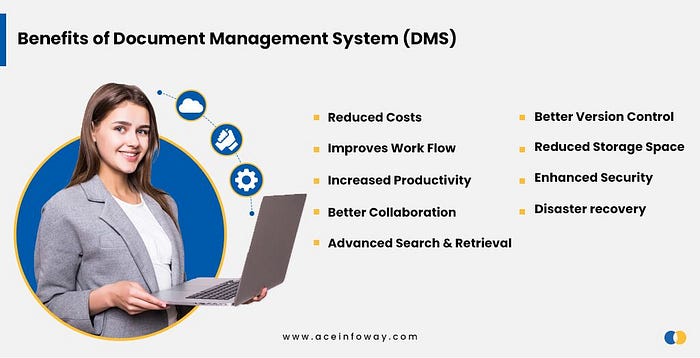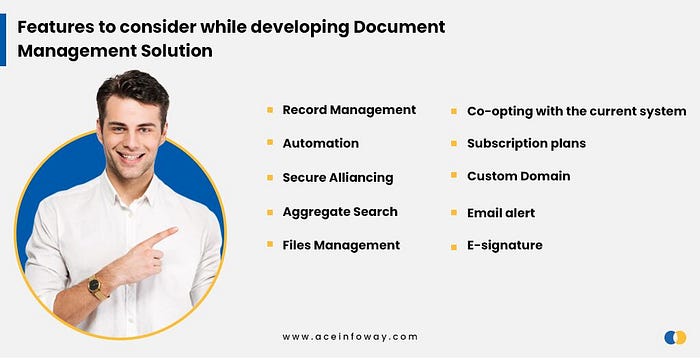The statistic shows a forecast of the documents management systems market value worldwide in 2017 and 2023. The 2017 market value was estimated at 3.59 billion U.S. dollars and it is projected to increase to 6.78 billion U.S. dollars by 2023.

A Cloud Based DMS is simply explained as
A cloud-based document management system (DMS) is a piece of software that allows users to store, manage, and track electronic documents as well as photographs of paper documents. The documents are kept on distant servers that may be accessed from any location with an internet connection. Users may access and collaborate on documents from any device, at any time, and in any location.
Version control, security, user permissions, and interaction with other applications such as office suites, email clients, and CRMs are common aspects of cloud-based DMSs. They also support automatic backups and disaster recovery, as well as the capacity to scale storage as the business’s needs change.
Let's look at some of the benefits of implementing a cloud-based DMS for your business:

Stay updated with all the information
Streamline the content process and consequently saves you time
Concedes real-time accessibility and problem-solving
Minimizes risk by enforcing security policies
Impeccable teamwork with critical document version control
Automates manual tasks like photocopy, drag-and-drop, and hand delivery
Unlocks financial gains by effectively reducing operating costs
Make Your Business Smarter in 2023 with Cloud-Based Document Management System
Here are some must-have features to consider while designing your Document Management System.

Files Management: Having a documentation management system is about more than just replacing physical files. Some keynote aspects in record management also include; capturing, document version control, security, audit tracking capabilities, search utilities, indexing, and record administration.
Third-party Software Integrations: At any particular time, businesses of all sizes utilize at least more than 50 different software products. Integrating the DMS with other systems, such as CRM, ERP, or email, can also add to the cost of development.
Collaborative Editing: With the help of this feature, multiple users can simultaneously engage and edit the same document.
Optical Character Reader (OCR): With OCR, still using paper documents can be easy to manage. The feature can effortlessly scan any printed or handwritten documents to be uploaded to the DMS repository.
Offline Access: The accessibility to view, edit, and download the files offline shall be considered a feature-rich DMS product.
eSignature — This feature precisely provides strong evidence of sign-off and approval as well as document authentication as it locks the document against unauthorized change.

Now let's take a dive into the factors that affect the overall cost of building a cloud-based DMS.
The best way to speculate the potential cost of building a Document Management System for your enterprise is to understand the factors that affect its valuation.
Take a look at the significant subjects that are a matter of consideration in determining the cost to build a Document Management System:
Storage Capacity: It is important to consider the size of the documents, as well as the type of data and the number of documents that are being stored.
Software with Service: Many businesses overlook the need for services for the customised designed DMS product and suffer the agonising revelation of the need to train staff, host the product, upgrade it, and pay for add-on facilities that cost much more than the original price of the product.
Developers’ Workforce: However, the average cost of development provided by outsourcing companies like Ace Infoway ranges from 20–25 USD per hour. If you intend to hire a product development team, you also need to consider the working experience that can reinforce the additional engineering required for your customized Document Management System.
Practical Cue: By and large, a typical dedicated team to build your customized Document Management System, involves a project manager, technical head, site developers, database developers, business analysts, and quality assurance engineer.
Takeaway
A real cloud-based Document Management System is very different from a cloud-based storage solution (Google Drive, Dropbox, etc.). It is imperative to understand the needs of your organization when evaluating the benefits of cloud-based Document Management Systems and to consider the options for workflow management, security, compliance, remote working, document access and collaboration, as well as business continuity.
Get a free estimate for your Custom Document Management System

